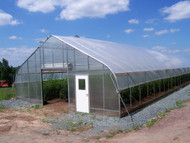What is the difference between a high tunnel and a greenhouse? What about a hoop house? As a grower, how do you know which one you need?
The terms “high tunnel,” “greenhouse,” and “hoop house” are often used interchangeably, but each have a specific meaning in the greenhouse world.
High Tunnels: Unmatched Flexibility for Season Extension
The term high tunnel has become increasingly popular among farmers in recent years, in part due to rising awareness of NRCS cost-sharing programs for high tunnels. The main difference between a “high tunnel” and a traditional greenhouse is right in the name: high tunnels are taller than a standard greenhouse, with extended ground posts that raise the side walls.
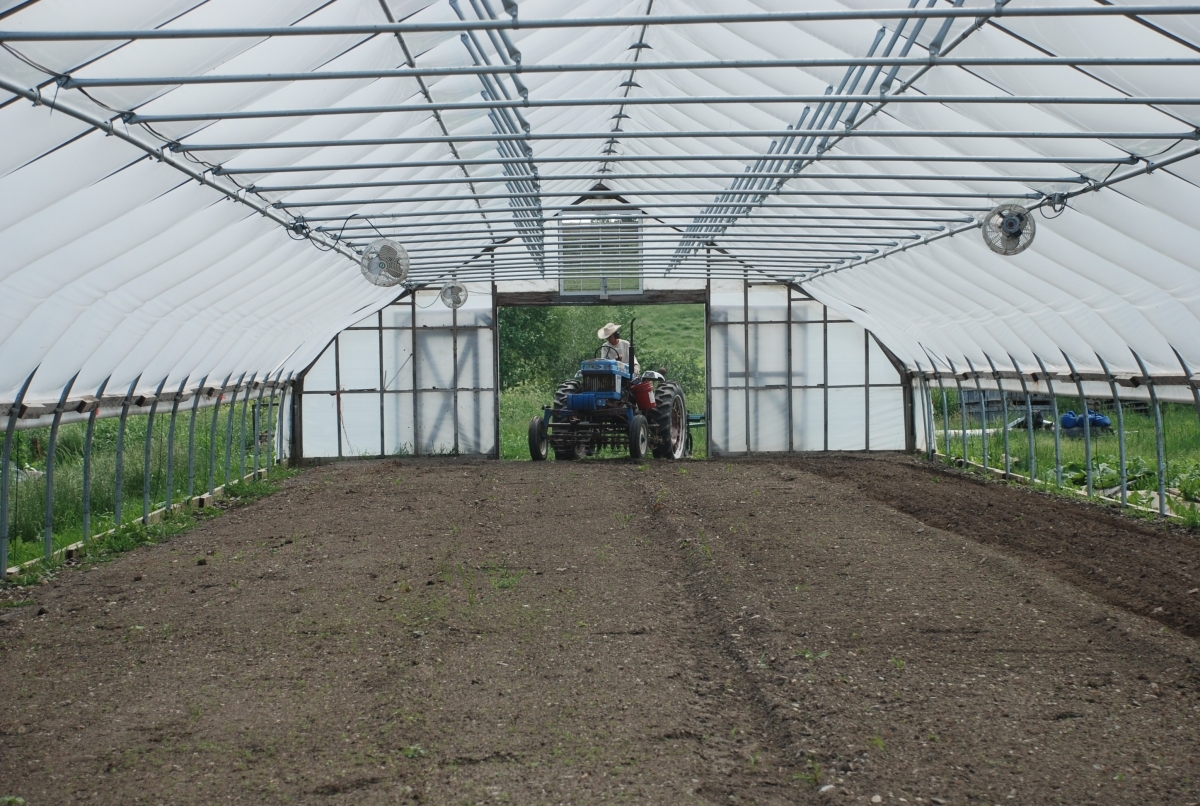
Depending on who you are speaking with, the definition of a high tunnel beyond that can vary. According to the NRCS , a high tunnel also requires crops to be grown directly in the ground – not in raised beds or in containers on tables. High tunnels are covered in plastic (polyethylene or polycarbonate) and they are generally unheated, although some growers do use gas-powered heat. Most high tunnels utilize roll-up sides as a form of natural ventilation.
High tunnels are typically used by farmers growing vegetables, fruits and cut flowers. High tunnels are designed to be lighter, more mobile, more flexible, and more versatile than a permanent greenhouse structure. And, because they do not require a foundation, high tunnels can be installed significantly faster and easier than a traditional greenhouse.
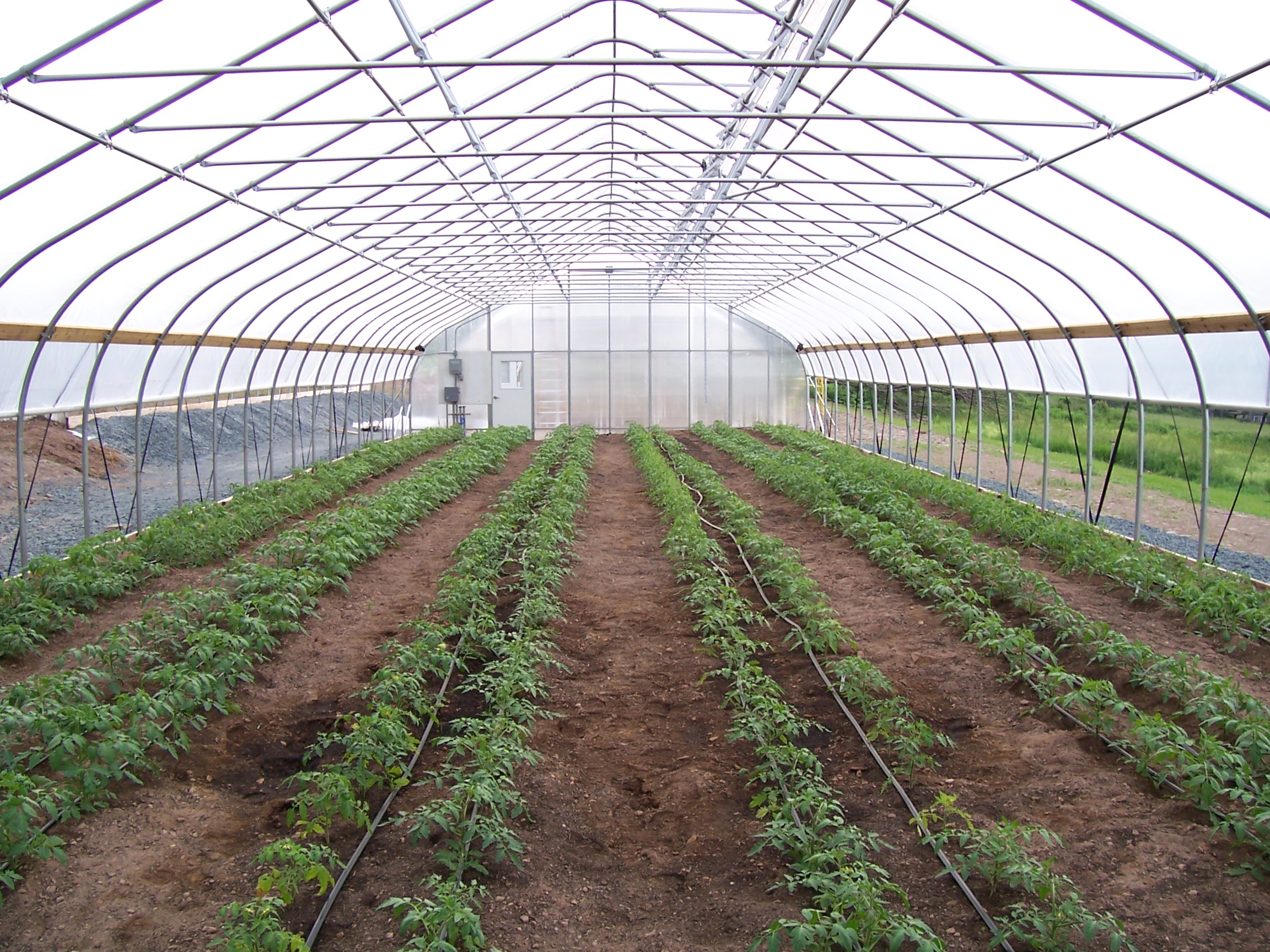
High tunnels aim to maximize efficiency for farmers while offering flexibility and room for growth. Although some high tunnels are designed to function as a simple covered growing space, they can also be outfitted with environmental controls, ventilation systems, and even electricity. These additions can turn a simple high tunnel into a powerful growing tool for farmers of all sizes.
The NRCS high tunnel initiative has enabled many smaller farmers to build and begin growing in high tunnels, allowing them to reap the benefits of season extension and year-round growing.
Greenhouses: Superior Strength & Durability for Any Growing Operation
In contrast to a high tunnel, a traditional greenhouse is a grow space designed for full-year operation. Greenhouses are typically built upon a permanent foundation and are covered with polycarbonate or glass to provide more robust year-round protection. Some greenhouses also include advanced environmental control systems that can be used to automate heating and cooling, ventilation, lighting, shade systems and more.
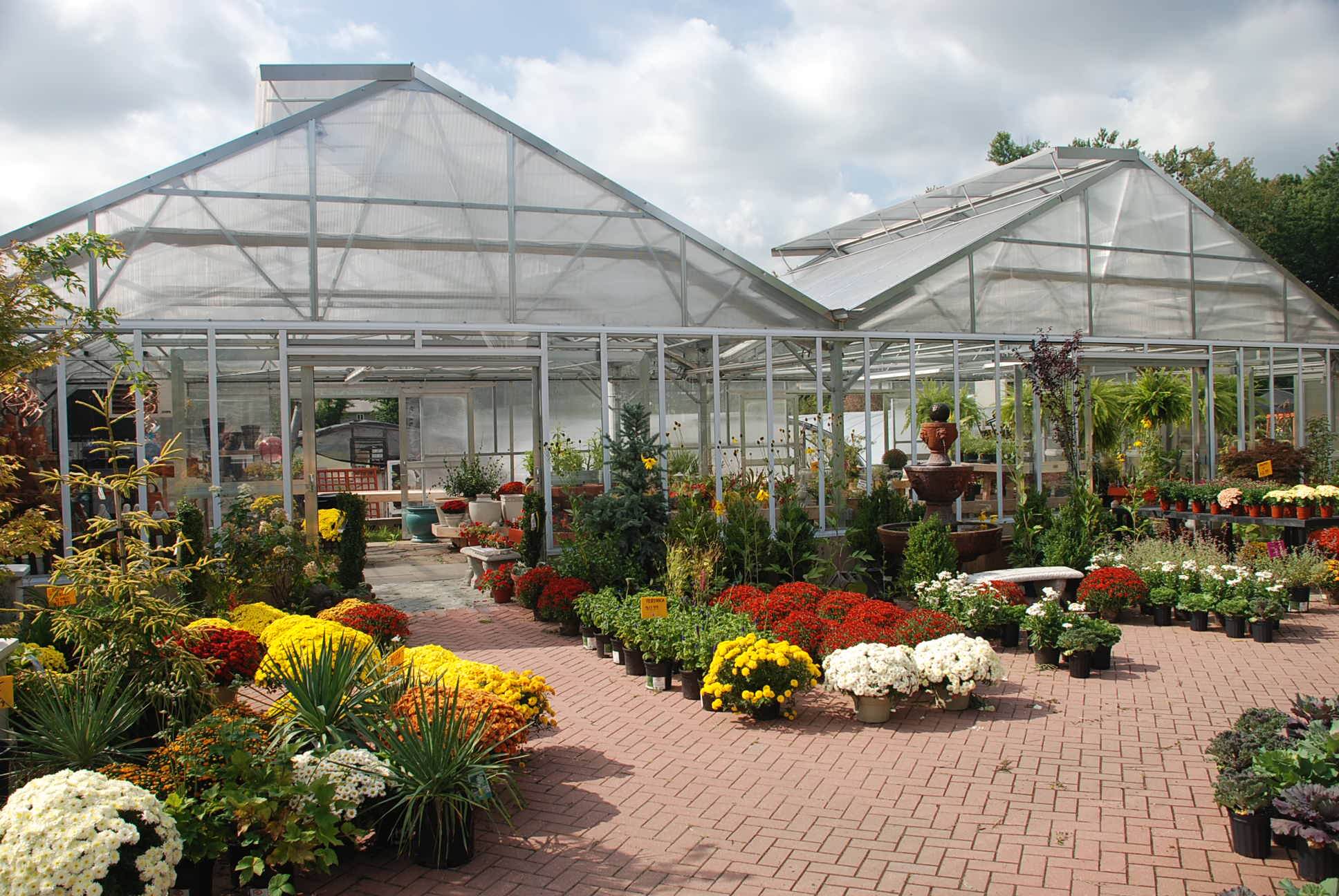
In a garden center, a greenhouse may be used as a retail space, allowing customers a comfortable setting to walk around among a selection of thriving plants. A nursery could use a greenhouse to start seedlings on benches, or other growers may utilize environmental control systems to create the perfect growing environment for hydroponic lettuce, fruit trees, or cannabis. A university may have a greenhouse outfitted with top-of-the-line equipment and controls systems, enabling them to conduct cutting-edge biology research.
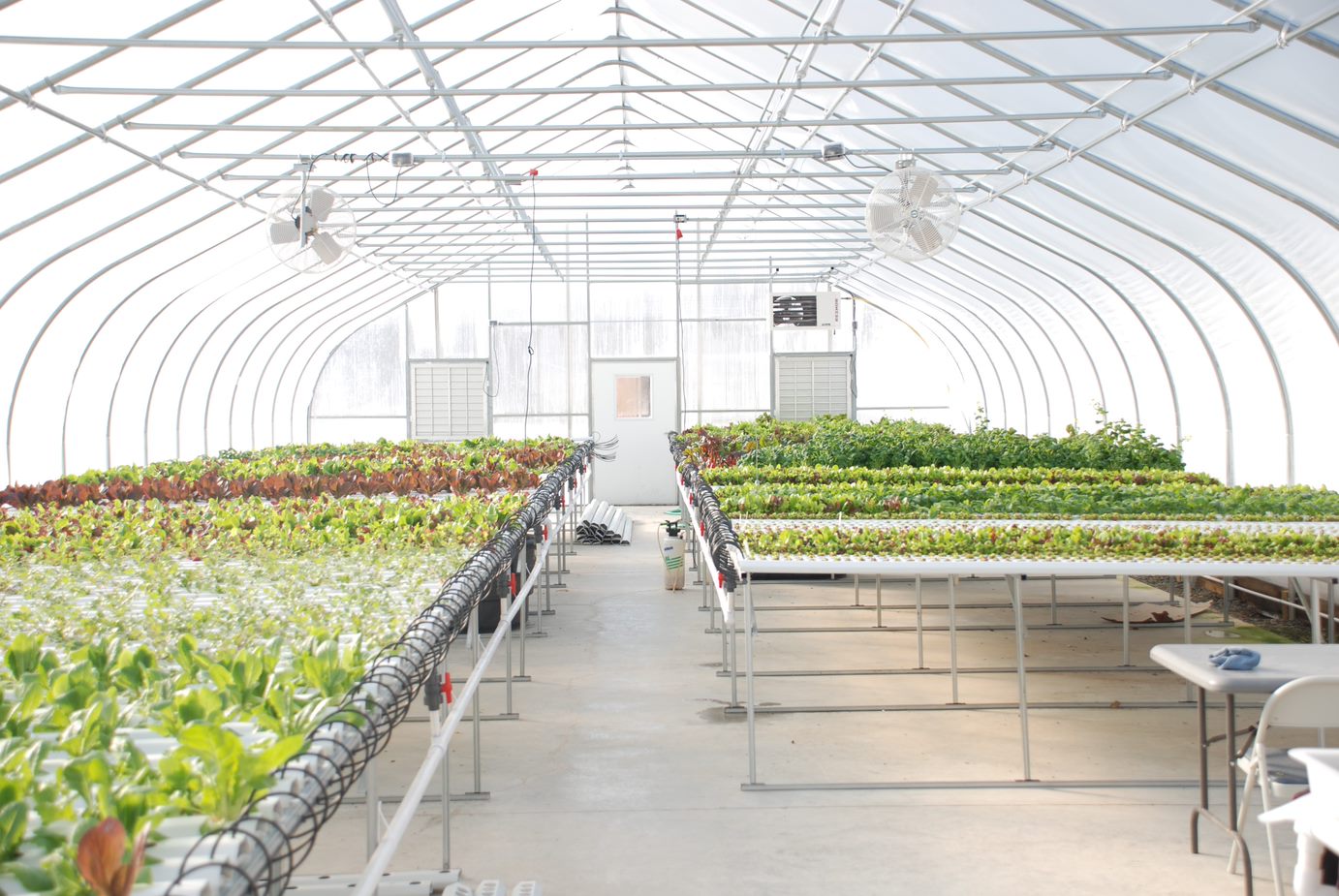
There are a few other buzzwords that arise in the world of traditional greenhouses, depending on the type of growing operation:
- Controlled environment agriculture, or CEA, is a term used for growing crops indoors – including in a greenhouse – using technology to control the growing conditions. By carefully monitoring temperature, humidity, light, carbon dioxide and other factors, CEA greenhouses provide optimal growing conditions for the best possible crop yield.
- Hydroponics is the technique of growing plants without soil, usually in a nutrient-rich water solutions or in an inert substance such as rockwool or perlite.
- Aquaponics is the practice of combining hydroponics with aquaculture (fish farming), using the waste produce by the fish as nutrients for hydroponically grown plants.
Hoop Houses: A “Starter” High Tunnel
Often associated with backyard gardens and small-scale farms, hoop houses are a smaller high tunnel designed for maximum simplicity. Utilizing simple, curved purlins with a single layer of poly covering stretched over the top, hoop houses can be installed quickly over an existing crop bed or above a planned crop area to provide protection over a growing space no larger than a backyard garden plot. Hoop houses are typically the least durable option for protected growing and are really considered a “starter” option for backyard or hobby growers, rather than a viable choice for year-round growing.
If you’re ready to get started on your next high tunnel or greenhouse project —or if you need further assistance in deciding which is right for you—we’re here to help. Get in touch with our expert greenhouse sales team and we can help you find the option best suited for year-round success.

